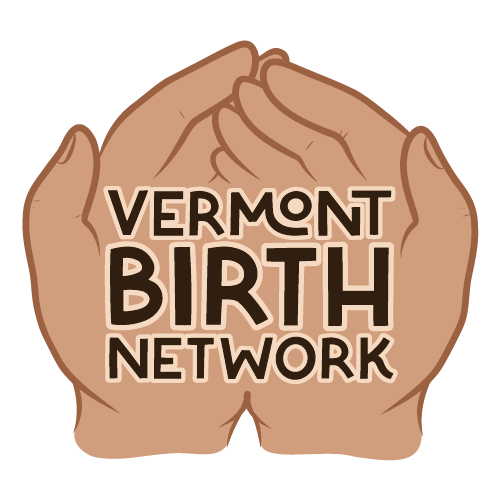
Postpartum Doulas
Postpartum doulas provide valuable support and guidance to individuals and families during the postpartum period, which is the time following childbirth. Their primary focus is to ensure a smooth transition into parenthood and to provide physical, emotional, and informational assistance during this crucial time.
-

Meg Bronz
-

Birch Tree Birth Services
-

Arrity Deakin
-

Heather Gallagher
-

Rachael Gelineau
-

Molly Kramer
-

Dani Krawiec
-

Kristin Martins
-

Madeline Mindich
-

Ashley Norris
-

Hannah Pfeil
-

Adena Rose
-

Greer Sargeant
-

Vermont Doula Company
Are you looking for overnight postpartum Support?

Search by Location
Frequently Asked Questions
-
Here's an overview of what postpartum doulas do:
Emotional Support: Postpartum doulas offer emotional support and reassurance to individuals and their families as they adjust to the challenges and joys of caring for a newborn. They provide a listening ear, offer encouragement, and validate the emotions and experiences of new parents.
Practical Support: Postpartum doulas assist with practical tasks to ease the transition into parenthood. This may include light housekeeping, meal preparation, running errands, and providing sibling care, allowing parents to rest, recover, and bond with their newborn.
Infant Care Education: Postpartum doulas provide education and guidance on newborn care, including bathing, diapering, soothing techniques, and feeding. They may assist with breastfeeding or bottle-feeding support, helping parents gain confidence and knowledge in caring for their baby.
Postpartum Recovery Support: Doulas offer guidance and resources to support postpartum recovery. They provide information on physical healing, perineal care, postpartum exercises, and pain management techniques. They can also offer referrals to other healthcare professionals as needed.
Baby Feeding Support: Many postpartum doulas are trained in feeding techniques and can provide basic assistance to individuals who. They may also provide information on breast/chest pump use, milk storage, and feeding routines. For more specialized lactation support you may consider reaching out to a Lactation Consultant.
Sleep and Rest Support: Postpartum doulas help parents navigate the challenges of newborn sleep patterns and offer strategies to promote healthy sleep habits. They may provide guidance on creating a conducive sleep environment, establishing routines, and assisting with newborn soothing techniques.
Emotional Well-being: Doulas promote the emotional well-being of new parents by creating a supportive and non-judgmental environment. They offer a safe space for parents to express their concerns, fears, and joys. They may also provide information on postpartum mood disorders and connect families with appropriate resources if needed.
Referrals and Resources: Postpartum doulas have knowledge of community resources and can refer families to appropriate professionals, such as lactation consultants, mental health specialists, or pediatricians. They can provide information on support groups, parenting classes, and other resources available in the community.
It's important to note that postpartum doulas do not provide medical care or make medical decisions. They complement the care provided by healthcare professionals and work in collaboration with them to support the overall well-being of the family during the postpartum period.
The specific services and scope of practice of postpartum doulas may vary, so it's recommended to discuss your specific needs and expectations with a postpartum doula to ensure they align with their services.
-
An overnight doula, also known as a night doula or postpartum night nanny, is a trained and experienced professional who provides overnight support and care to new parents and their newborns during the postpartum period.
Their primary role is to help parents get the rest they need by taking care of the baby during the night, allowing the parents to sleep and recharge.
Here are some common responsibilities and services provided by overnight doulas:
Newborn Care: Overnight doulas are skilled in newborn care. They can feed, change, and soothe the baby, ensuring the baby's needs are met throughout the night.
Feeding Support: If the parent(s) is/are Human milk feeding, overnight doulas can assist with nighttime feedings, helping with latching and positioning and ensuring that the baby is feeding well. They can also help with bottle feeding and support with nighttime feeding so parents can rest.
Sleep Support: They create a conducive sleep environment for both the baby and the parents. This includes managing the baby's sleep schedule and providing guidance on safe sleep practices. Some nighttime doulas are also sleep consultants and can help guide parents with facilitating more sleep, in an age-appropriate way for infants.
Emotional Support: Overnight doulas offer emotional support and reassurance to parents, especially if they are feeling overwhelmed or anxious. They can provide guidance on newborn care and parenting techniques.
Light Housekeeping: While their primary focus is on the baby and the parent's well-being, some overnight doulas may assist with light housekeeping tasks, such as washing bottles or doing laundry related to the baby.
Respite for Parents: One of the main benefits of hiring an overnight doula is to provide parents with much-needed rest. By taking care of the baby during the night, parents can get more uninterrupted sleep, which can be essential for their physical and emotional well-being.
Education and Guidance: Overnight doulas can offer guidance on topics related to infant care, such as feeding, diapering, and soothing techniques, as well as answer questions parents may have.
The specific services provided by overnight doulas can vary based on the family's needs and the doula's training and expertise. Parents can typically hire overnight doulas for a certain number of nights per week or on an as-needed basis.
Overall, overnight doulas play a valuable role in supporting new parents during the challenging and sleep-deprived early weeks and months of parenthood. Their assistance can help parents adjust to their new roles and ensure the well-being of both the baby and the family as a whole.
-
People pay for postpartum doulas through various methods, and the specific arrangement can vary depending on the doula's policies and the preferences of the parents. Here are some common ways people pay for postpartum doula services:
Out-of-Pocket Payment: Many people pay for postpartum doula services directly out of their own pockets. This involves negotiating a fee with the doula and making payments as agreed upon.
Health Savings Accounts (HSAs) or Flexible Spending Accounts (FSAs): In some cases, parents may use funds from their HSAs or FSAs to cover doula services. However, this may require a doctor's prescription stating that the doula services are medically necessary for the postpartum period.
Insurance Reimbursement: While it's less common, some insurance companies may provide reimbursement for postpartum doula services if they are deemed medically necessary. Parents should check with their insurance provider to see if this is an option.
Sliding Scale Fees: Some doulas offer sliding scale fees based on the family's income or financial situation. This can make doula services more affordable for a wider range of clients.
Gift Registry: Some parents create a gift registry specifically for postpartum doula services. Friends and family members can contribute to the doula's fee as a gift to the new parents.
Crowdfunding or Fundraising: In certain situations, families may turn to crowdfunding platforms or fundraising efforts to raise money to pay for postpartum doula services.
It's essential to discuss payment options and fees with your chosen postpartum doula well in advance of your due date. This ensures that both parties are clear about the financial arrangement and can plan accordingly. Additionally, some doula organizations or agencies may have specific payment policies that clients need to follow. Always inquire about payment methods and options during the initial consultation with your chosen doula.
-
Some postpartum doulas will book up their schedule quickly, so you will have the most freedom of choice the earlier you look.
People typically look to hire a postpartum doula during pregnancy, often in the second or third trimester. The exact timing can vary depending on individual preferences and circumstances, but here are some common points in pregnancy when people start considering and hiring postpartum doulas:
Second Trimester: Many parents start researching and contacting postpartum doulas during the second trimester of pregnancy. This gives them ample time to find the right doula, discuss their needs and preferences, and make arrangements for postpartum support.
Early Third Trimester: Some families prefer to make arrangements for a postpartum doula in the early part of the third trimester, around 28 to 32 weeks of pregnancy. This allows them to secure the doula's services and have a plan in place well before the baby arrives.
When Specific Needs Arise: If parents have specific concerns or anticipate challenges during the postpartum period, they may decide to hire a postpartum doula earlier in pregnancy. For example, if there are medical conditions, history of postpartum depression, or other special circumstances, they may want to plan for extra support.
Late Pregnancy: In some cases, families may choose to hire a postpartum doula later in pregnancy, even in the weeks leading up to the due date. While this doesn't provide as much time for preparation, it can still be beneficial for families who realize later in pregnancy that they will need additional support.
It's important to start the search and hiring process early enough to ensure you can find a postpartum doula who is available and a good fit for your family. Postpartum doulas may have limited availability, so booking them in advance can help secure the support you need during the postpartum period. Additionally, meeting with potential doulas and discussing your expectations and needs in advance allows for a smoother transition into the postpartum phase after the baby is born.
-
Doulas typically charge a range from $25-$60 per hour. (This rate my vary for multiples or overnights)
